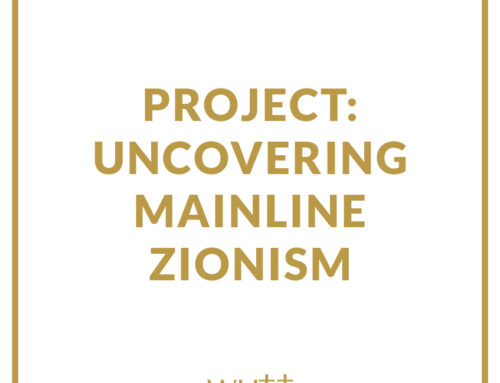Congressman Ernest Istook (R OK) has been working tirelessly on a Religious Freedom Amendment to the Constitution. Finally, he has come up with language satisfactory to almost all Christian-conservative and pro-family groups. Human Events 4 (Apr. 11, 1997).
On March 24, 1997, Congressman Istook announced that his proposed Amendment would read:
To secure the people’s right to acknowledge God: The right to pray or acknowledge religious belief, heritage or tradition on public property, including public schools, shall not be infringed. The government shall not compel joining in prayer, initiate or compose school prayers, discriminate or deny a benefit on account of religion.
Joining Congressman Istook in support of this language is a Who’s Who of the Religious Right, including the American Family Association, Family Research Council, the Christian Coalition, Concerned Women for America, Focus on the Family, Americans for Voluntary Prayer, Toward Tradition, and the National Clergy Council.
The Congressman and his supporters maintain that the Amendment is necessary to reverse court opinions that threaten to strip America of her public religious heritage, to deny to public school children the right to pray at school and otherwise to express their religious beliefs, and to discriminate against religious groups seeking government funds to support their social programs.
Christian heritage:
Congressman Istook is right to point out that courts are threatening the right of the people and government officials to acknowledge the nation’s Christian heritage. But his Amendment falls short of the mark. It deals only with one symptom of a much more serious problem. And by failing to address the underlying problem, it will reinforce discrimination against Christians, not alleviate it.
For over two decades now, courts have assumed that the Establishment Clause requires government officials to formulate the nation’s public policy on “secular” grounds, that is on grounds that are not religious, especially not Christian. Under a constitutional regime of “religious neutrality,” government policies historically based upon Christian principles are threatened with constitutional illegitimacy.
It is this policy of “religious neutrality” that has spawned the court opinions discriminating against the expression of Christian views on government property. While the Istook Amendment would stop this extension of the court’s religious neutrality doctrine, it does nothing to guarantee that Christians may take their Biblical faith into the executive mansions, the legislative halls, and the courtrooms in order to influence the nation’s law and public policy.
All that the Istook Amendment does is to guarantee to Christians that they may remember that at one time in the nation’s history, its laws and public policies were shaped by the Bible and by a Christian worldview. But it does nothing to insure that the nation’s Biblical heritage may be drawn upon to shape law and public policy today.
By keeping silent on that issue, the Istook Amendment actually reinforces the assumption that the Establishment Clause requires Christians scrupulously to refrain from allowing their religious beliefs and principles to influence the formulation of public policy and the administration of the law.
Ratification of the Istook Amendment would, therefore, ensure that America’s Christian heritage remained just that – a memory of what the nation used to be, but is no longer.
Government schools:
Congressman Istook is correct about the discriminatory practices against Christian teachers and students in the nation’s tax-supported government schools. But his Amendment just nibbles around the edges of the problem. It does nothing to address the heart of the matter.
For years, the Supreme Court has demanded that the Bible – as the revealed word of God, be excluded from the public school classroom. As a consequence, America’s school children are taught
history, government, literature, mathematics and science as if there is no God.
The Istook Amendment will guarantee that this discriminatory practice will continue: Darwinian evolution will continue to its daily monopoly grip inside the schoolhouse, while a voluntary prayer meeting will from time to time take place around the flag pole in the schoolhouse yard.
Under the Istook Amendment, an individual teacher or student will occasionally muster the courage to challenge the atheistic status quo. At the same time, it insures that a godly teaching philosophy will never again darken the hallowed halls of the government academy.
Not only would the Amendment do nothing to change the public schools’ atheistic teaching philosophy, it would – for the first time in history – grant express First Amendment approval of a system of tax-supported government schools.
This would be a serious mistake. In exchange for a sop to Christian people who have been pushed out of the educational mainstream, the Istook Amendment leaves the Government’s monopolistic educational practices constitutionally untouchable.
Yet, a study of the original purpose of the religion clauses of the First Amendment demonstrates a design to prohibit the government from taxing the people to support the education of the nation’s children. Thomas Jefferson warned against Governments that used their taxing power to support the propagation of opinions, calling such Governments sinful and tyrannical. James Madison also warned against Governments that use “truth” as an engine of public policy. John Stuart Mill also warned that the people’s liberties would be lost if Governments took over the education of the people.
The Istook Amendment not only does not challenge Government dominance of the education of our children, it legitimates it. And that is not all, the Istook Amendment, if ratified, virtually insures a Government stranglehold on the social programs of the Church and other religious organizations.
Government welfare:
Congressman Istook complains that “many religious programs that … help the homeless or combat drug addiction are in danger of losing government funds.” Human Events 4 (Apr. 14, 1997) Thus, the Istook Amendment prescribes that “[t]he government shall not … discriminate against or deny a benefit on account of religion.”
With this language, the Istook Amendment does two things. First, it gives First Amendment backing – again for the first time – to federal Government welfare programs. Second, it affirms the legitimacy of Government subsidization of church-run social programs. Thus, the Istook Amendment virtually assures Government control of a whole array of social services traditionally administered by the church solely with private funds.
If ratified, it would lead Churches and other voluntary associations to become dependent upon public funding for their community outreach activities. That dependence, in turn, would strengthen the hand of government officials to force them to compromise their religious convictions to conform to government policies. The recent capitulation of the Catholic Church in San Francisco is a case in point.
The city enacted a law requiring all city contractors to provide spousal benefits to homosexual couples. Because the Catholic Church contracted with the city to administer city funds to help the poor, city officials demanded that the Church conform to its law. The Wanderer 1, 10 (Feb. 13, 1997)
Initially, the Archbishop of San Francisco resisted, even threatening to bring a lawsuit to preserve its religious position against homosexuality. Then, in an about face, he compromised, unwilling to forego loss of public funds supporting the church’s outreach to the poor. The Wanderer 1, 9 (Feb. 20, 1997).
Had the Church never taken city funds in the first place, the Archbishop would never have been faced with this tough choice. Had the city honored the proper limits civil power, it could not have pressured the Church to dishonor her moral teachings.
The First Amendment was designed to separate the jurisdiction of the State from that of the Church in order to ensure that the Church’s business would not be run by the State. The Istook Amendment abandons that jurisdictional principle, opting instead for a guarantee that forces the State to confer its “benefits” upon the Church. That guarantee is a double-edged sword that will inevitably put the Government in control of the Church, thereby compromising its moral and religious teaching.
Conclusion:
The Istook Amendment is not a step in the right direction. Rather, it is a leap backwards to the days when the State used its powerful sword to force conformity of belief and moral behavior. Friends of freedom of religion would be well advised to oppose this latest effort to tinker with the First Amendment and put their energies to good use – restoration of the original jurisdictional principle that would stop the Government from usurping the business of the church.
This article appeared in The Forecast, a monthly Christian journal on legal matters. Posted on this Website with permission from Herbert Titus. 8/97
Please contact Mr. Titus at 757-421-3644 or write to: 2400 Carolina Rd. , Chesapeake, VA 23322


